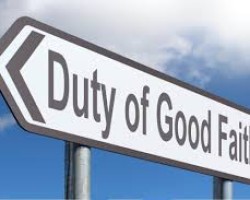
JDSUPRA-
Maine is joining the ranks of states whose requirements for mortgage servicers may exceed those of the CFPB’s Mortgage Servicing Rules. Effective September 19, Senate Paper 415 (2019 Me. Laws 363) creates a mortgage servicer duty of “good faith,” meaning honesty in fact, and the observance of reasonable commercial standards of fair dealing. This duty applies to the servicing of a residential mortgage (including in any related foreclosure action). Further, the measure applies the duty to existing provisions of Maine law relating to the conduct of foreclosure mediation, permitting a court to impose sanctions on a servicer who fails to participate in good faith in mediation.
What Activities Are Covered?
“Servicing,” for purposes of the new requirement, means any combination of:
- receiving a periodic payment from an obligor under the terms of an obligation, including an amount received for an escrow account;
- making or advancing payments to the owner of an obligation on account of an amount due from the obligor under a mortgage servicing loan document or a servicing contract;
- making a payment to the obligor under a home equity conversion mortgage or reverse mortgage;
- evaluating the obligor for, or communicating with the obligor with respect to, loss mitigation;
- collecting funds from a homeowner for deposit into, and making payments out of, an escrow account; and
- taking any other action with respect to an obligation that affects the obligor’s payment or performance of the obligation or that relates to enforcement of the obligation.)
What Entities Are Covered?
While the duty of good faith applies broadly, certain entities are exempt. For purposes of the new requirement, a “mortgage servicer” is a person responsible for:
- receiving scheduled periodic payments from an obligor pursuant to the terms of a mortgage, including amounts for escrow accounts;
- making or advancing payments to the owner of the loan or other third parties with respect to amounts received from the obligor pursuant to a loan servicing contract; and
- evaluating obligors for loss mitigation or loan modification options.
The term includes a person that holds, owns, or originates a mortgage loan obligation if the person also services the obligation. However, among others, the term does not include a “supervised financial organization,” a “financial institution holding company,” a “credit union service organization,” or a subsidiary of any such entity. Accordingly, for purposes of the good faith requirement, the term is limited to non-depository entities (i.e., state-licensed servicers).
Penalties
The measure creates substantial penalties for a servicer’s failure to act in good faith. A violation in connection with a foreclosure action may be remedied by dismissal or stay of the action, or by the imposition of other sanctions that the court deems appropriate for so long as the violation continues. For violations more generally, an injured homeowner or obligor may recover actual damages and the costs and attorney’s fees incurred in bringing such an action. Additionally, statutory damages of up to $15,000 are available if the servicer has engaged in a pattern or practice of violating the duty of good faith. The measure further prohibits a servicer from charging a loan owner for, or adding to the amount of the obligation, any attorney’s fees or other costs incurred as the result of its violation of the duty of good faith.
[View source.]
[JDSUPRA]
© 2010-19 FORECLOSURE FRAUD | by DinSFLA. All rights reserved.


